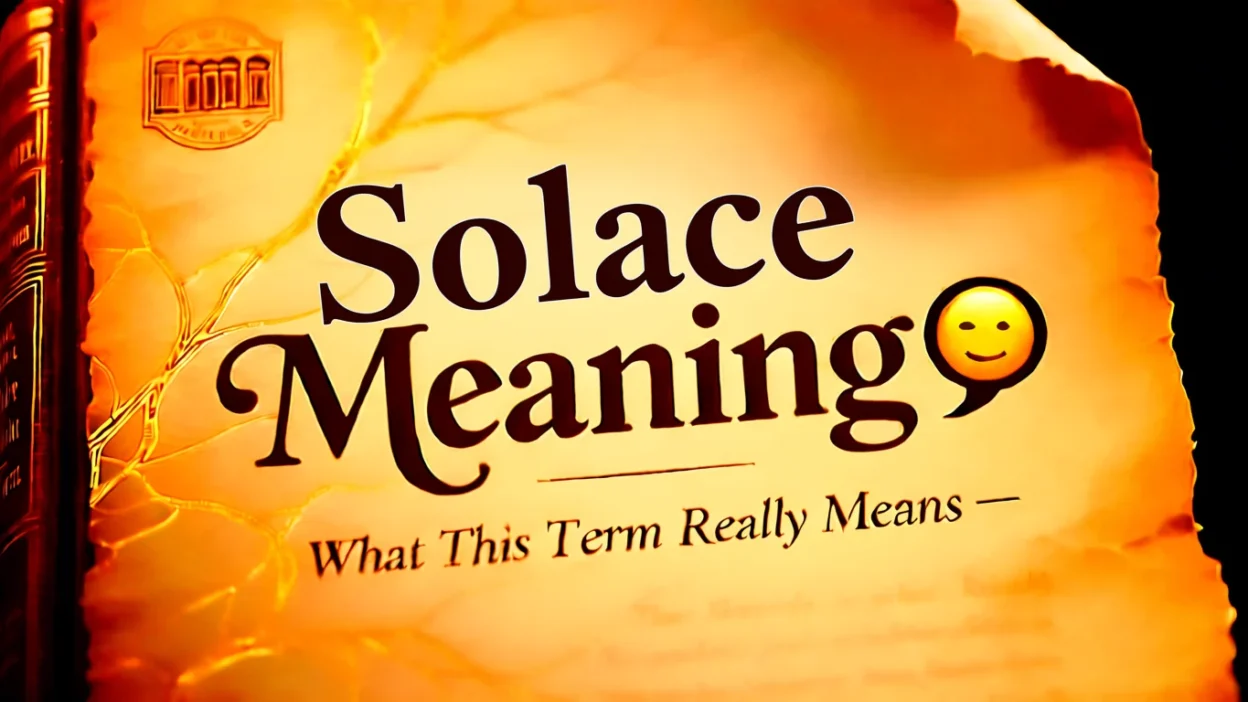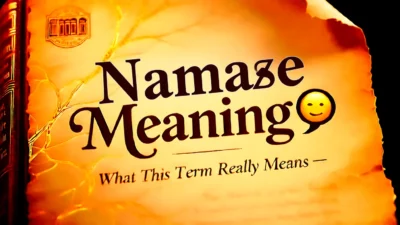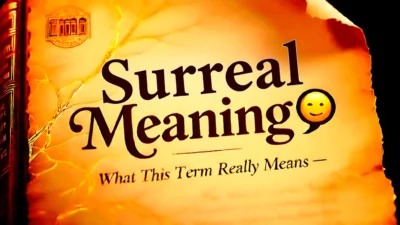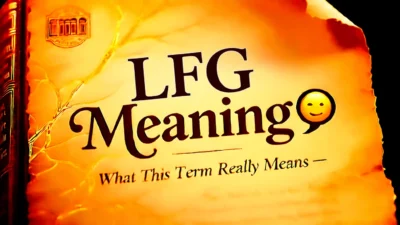Ever hear someone say they “found solace” in something and wonder what it actually means? I remember the first time I saw the word — I assumed it meant something deep and poetic, but I couldn’t pin down the exact meaning. Turns out, solace is one of those gentle words that people use when talking about comfort and emotional healing.
If you’re unsure what it truly means, here’s the full breakdown in simple, clear English.
Quick Answer:
Solace means comfort, relief, or emotional support during a sad or difficult time.
It’s a calm, comforting word often used when someone is upset or looking for peace.
What Does Solace Mean?
Solace refers to comfort, peace, or support that helps someone feel better when they’re sad, stressed, or hurting.
It can be emotional, physical, or even something like music, nature, or a person who makes you feel calm.
Example:
“She found solace in talking to her best friend.”
In short: Solace = Comfort + Emotional relief during tough moments.
Where Is “Solace” Commonly Used?
Solace is used in both everyday conversation and poetic or emotional writing. You’ll see it in:
- 📚 Books & literature
- 💬 Deep or emotional conversations
- ❤️ Talking about healing or comfort
- 🎵 Songs & lyrics
- 📝 Poetry
- 🌿 Self-care or mental wellness posts
It’s a soft, meaningful, and slightly formal word, but still common enough for daily speech.
Examples of “Solace” in Conversation
Here are realistic, easy-to-understand examples:
A: “After the breakup, what helped you feel better?”
B: “Honestly, music was my solace.”
A: “You seem calmer today.”
B: “Yeah, I found solace in going on long walks.”
A: “Did talking to her help?”
B: “A lot. Her words gave me solace.”
A: “Why do you love reading so much?”
B: “Books are my solace.”
A: “How’s your stress?”
B: “My family gives me solace through everything.”
When to Use and When Not to Use “Solace”
✅ When to Use
- Talking about emotional comfort
- Describing healing after stress or sadness
- Literary or poetic writing
- Speaking about personal peace
- Discussing grief, heartbreak, or difficult moments
❌ When NOT to Use
- Casual jokes or light conversation
- Formal business communication
- Describing physical comfort (use “relief” instead)
- Everyday small talk (“solace” might sound too deep)
Comparison Table
| Context | Example Phrase | Why It Works |
|---|---|---|
| Friend Chat | “Music gives me solace lately.” | Emotional & personal |
| Work Chat | “I found this approach helpful.” | More professional wording |
| “Your support has been comforting.” | Clear & formal |
Similar Words or Alternatives
| Word | Meaning | When to Use |
|---|---|---|
| Comfort | Relief, ease | Everyday language |
| Relief | Reduction of stress or pain | Physical or emotional release |
| Peace | Calmness, inner quiet | Wellness & mindfulness contexts |
| Support | Help or encouragement | Emotional or practical help |
| Reassurance | Feeling of being safe/confident | When calming someone’s worries |
| Refuge | Safe place | Strong emotional protection |
FAQs About Solace
What does solace mean in simple words?
It means comfort or emotional relief during a sad or stressful moment.
Is solace a positive word?
Yes — it describes peace, healing, and comfort.
Can a person give you solace?
Absolutely. A friend, partner, or family member can bring emotional comfort.
Is solace formal?
It’s slightly formal but still common in everyday speech.
What can give someone solace?
Music, nature, prayer, writing, talking to someone, hobbies, or quiet time.
Final Thoughts
Solace is a gentle, meaningful word that captures the feeling of finding comfort during tough times.
Whether it’s a person, a place, or something simple like music, solace represents emotional healing and peace. It’s a beautiful word to use anytime you’re talking about support, calmness, or recovering from stress.



